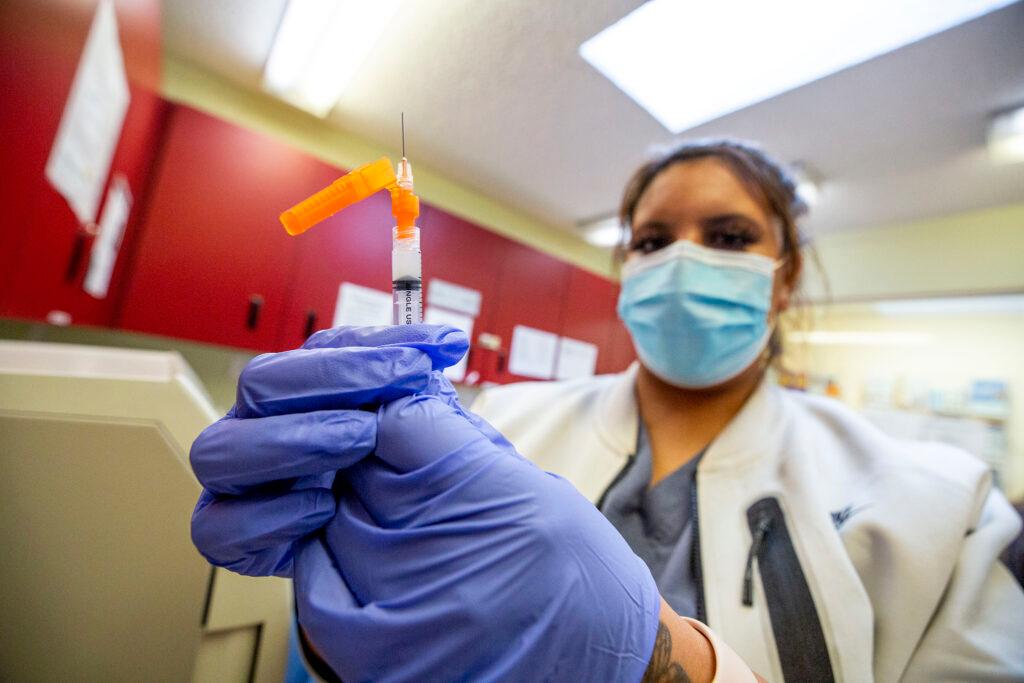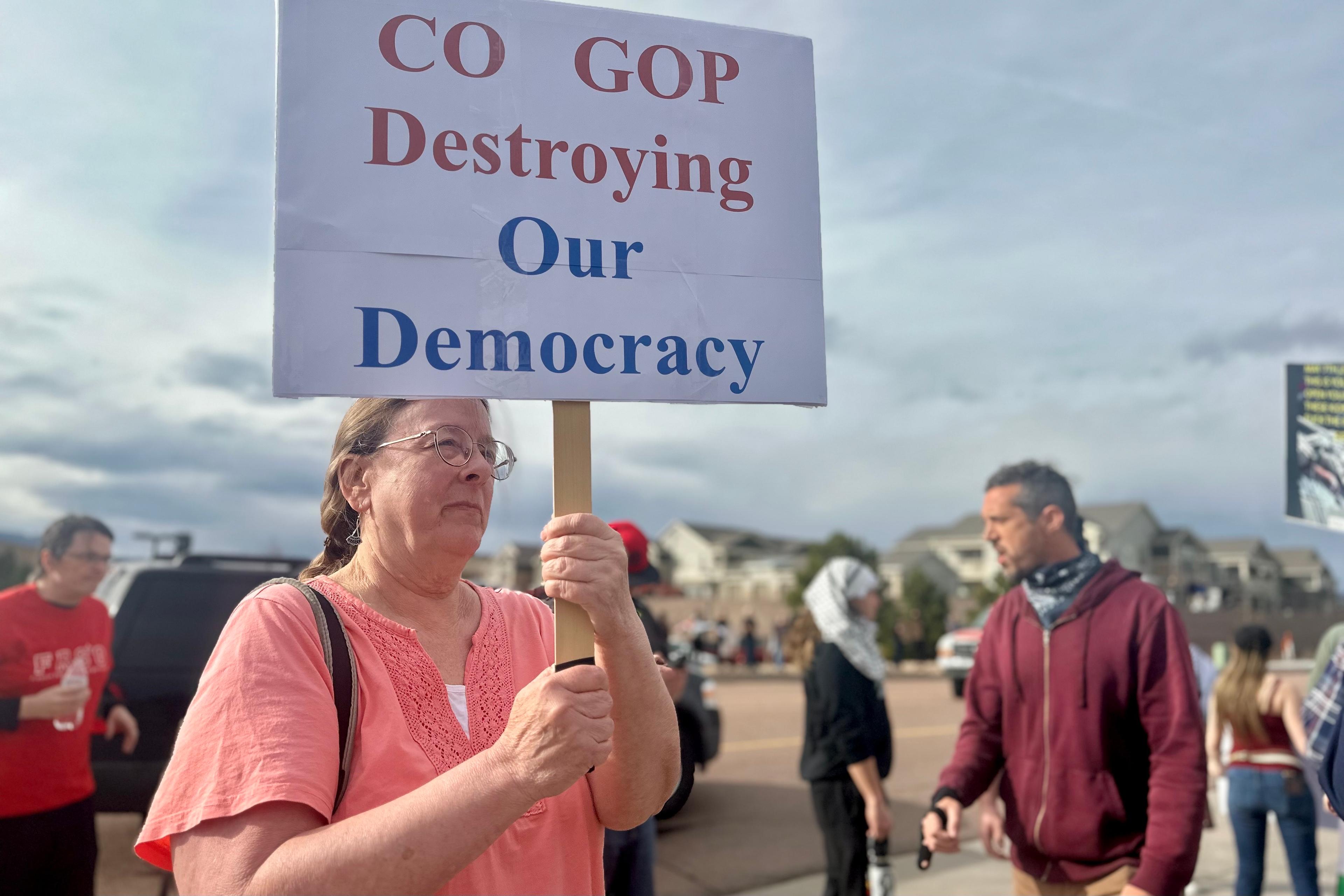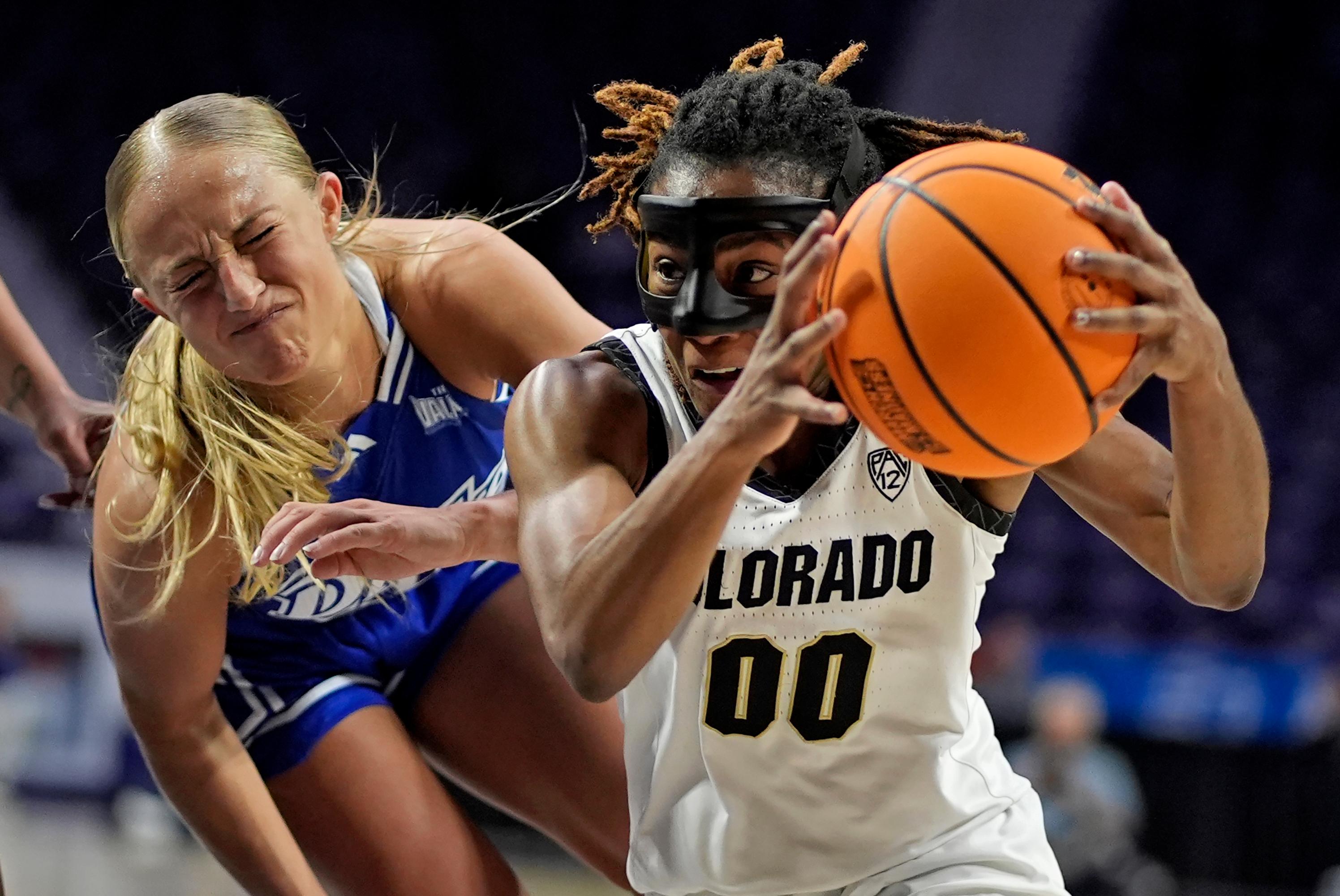
Given the slight uptick in concentrations of COVID-19 in local wastewater, we thought it would be a good time to check in with Dr. Anuj Mehta, a critical care physician at National Jewish Medical Center who advised the state on its COVID-19 response.
We asked Dr. Mehta about a range of issues including wastewater tracking, testing, vaccines, and Long COVID.
On wastewater data indicating an uptick in COVID-19 cases:
"The wastewater is really good indicator that there's probably more COVID that's circulating, but we're not really seeing a huge surge in hospitals, which is really the thing that I look for as to whether or not to be worried about the changes that we're seeing in wastewater. It's a tool that's been used by public health officials for a long time, and I think it is a very good and accurate bellwether for when we're going to start seeing changes in community transmission."
On what to think of COVID-19 now and in the future:
"If you're either vaccinated or you've had COVID in the past and you're otherwise healthy, people aren't getting super sick from it. We are continuing to see severe illness in people who are older, people with weakened immune systems, people that may not have any past immunity, those who haven't gotten the recommended vaccines and people with a lot of comorbidities. I think it was a major medical journal last month that highlighted the fact that people die from COVID at higher rates than influenza. And I know that people have always said, 'Oh, COVID is just like the flu.' I do think we need to take it seriously, but for the most part, COVID is kind of like the common cold at this point, but you have to be concerned about some of those risk factors if you have them."
On testing for COVID-19:
"I don't know if everybody has to test the minute they have any cold symptoms because we're not really recommending that five-day isolation period anymore. If you have symptoms, if you have a fever, if you have a really bad cough, whether you have COVID or not, you shouldn't be around people because you can make people who are vulnerable, who have weakened immune systems, sicker. I think if you're going to be in a setting where you're going to encounter people that are vulnerable ... then yeah, you should be testing when you get sick. If you're traveling, you should probably get tested. And we have at-home tests and tests that are in the hospitals, but in general, if you have a fever, if you have bad respiratory symptoms regardless of whether it's COVID, influenza or any of a other host of respiratory viruses, you should be staying home until you get better."
On the future of COVID vaccines:
"I suspect in the fall there's going to be a recommended booster for probably everybody, and I suspect we're moving towards an annual vaccination similar to influenza for now ... And, the really important thing is that the vaccines, similar to the influenza vaccine, are not going to prevent infection. What they do prevent is severe disease. When you get vaccinated, you have good protection against ending up in the hospital, ending up in my ICU, and ending up on a ventilator. There's also good data that patients who get vaccinated are probably less likely to get Long COVID and that's a really great message for people to remember is that vaccines are there to prevent you from getting really sick, and that's actually true of almost all of our vaccines."
On health risks from COVID vaccines:
"Everything has a side effect. There's no free lunch in healthcare. I will say that with really great randomized clinical trials that led to the vaccine approval and ongoing monitoring, we have seen that the risk of severe side effects is minimal. It's not zero, and this is a conversation for people. If you're otherwise healthy and have no problems, then the chances of you having a severe side effect is exceedingly low. If you have a past history of immunological disorders, if you have a past history of conditions called Guillain-Barre, or if you have a past history of having a bad reaction to a vaccine, it's worth a conversation with your healthcare provider."
On what we know about Long COVID:
"We're still learning so much about COVID, and we are constantly asking 'What are the lessons we've learned from the pandemic?' And, one of the lessons I've learned is that science evolves constantly so we're constantly learning more about Long COVID, and that's why we need really good research. Denver Health, the University of Colorado, and a lot of other institutions are doing the cutting edge research to see what are the core symptoms of Long COVID. We still don't have a great definition for it. What are some of the markers in the blood that might predict long COVID? Why do some people get it and other people don't? And, what are some treatments? What we're seeing is that for a lot of people within a year of getting COVID, some of the Long COVID symptoms tend to start improving. But again, that's not everybody and for some people they're debilitated even two years later can't work. And, there are huge economic and personal impacts as well."
On the possibility of a future pandemic:
"I have no idea when another pandemic is going to arise. I do think, though, that we have to be vigilant about it and one of the concerns I have is that despite millions of people dying and billions, if not trillions, of dollars lost in our economy from the COVID-19 pandemic, what I'm seeing in a lot of states is that we're dismantling our public health infrastructure. There's been such a pushback against some of the actions that were taken during COVID, and what we're losing is our ability to monitor for the next pandemic and to prevent the number of deaths that we saw with COVID. We need a really robust public health system that can monitor and then implement strategies to prevent things from getting worse and hopefully avoiding those kind of society-altering interventions that we had to do for COVID. And so my big push here is I don't think we can prevent the next pandemic, but if we're not watching, we're going to get hit blindsided."









